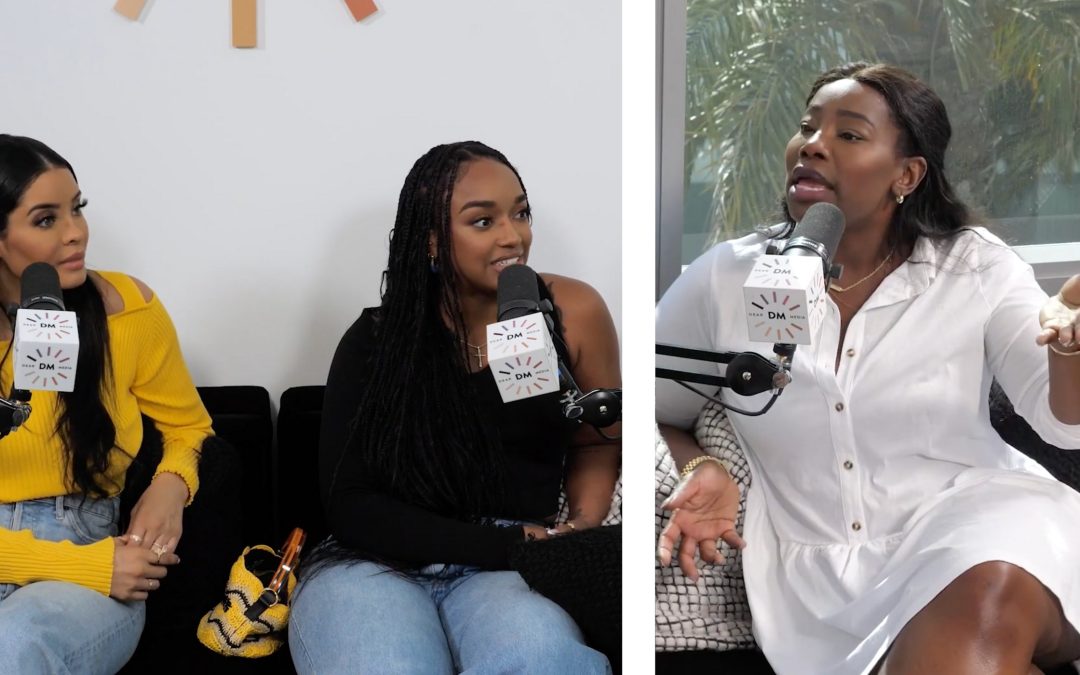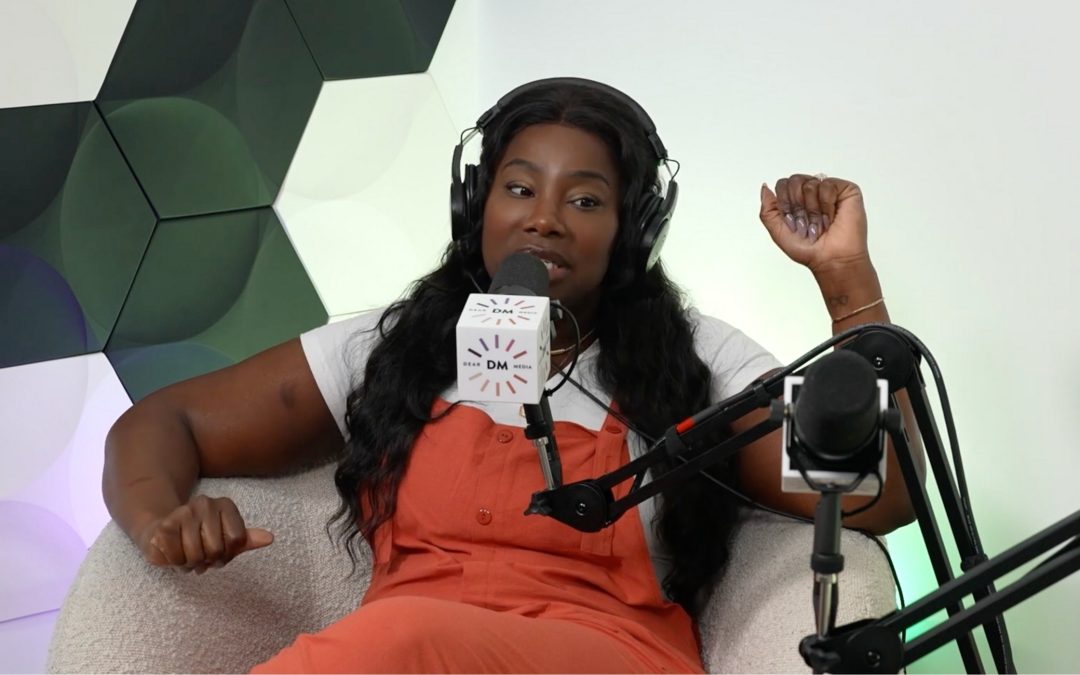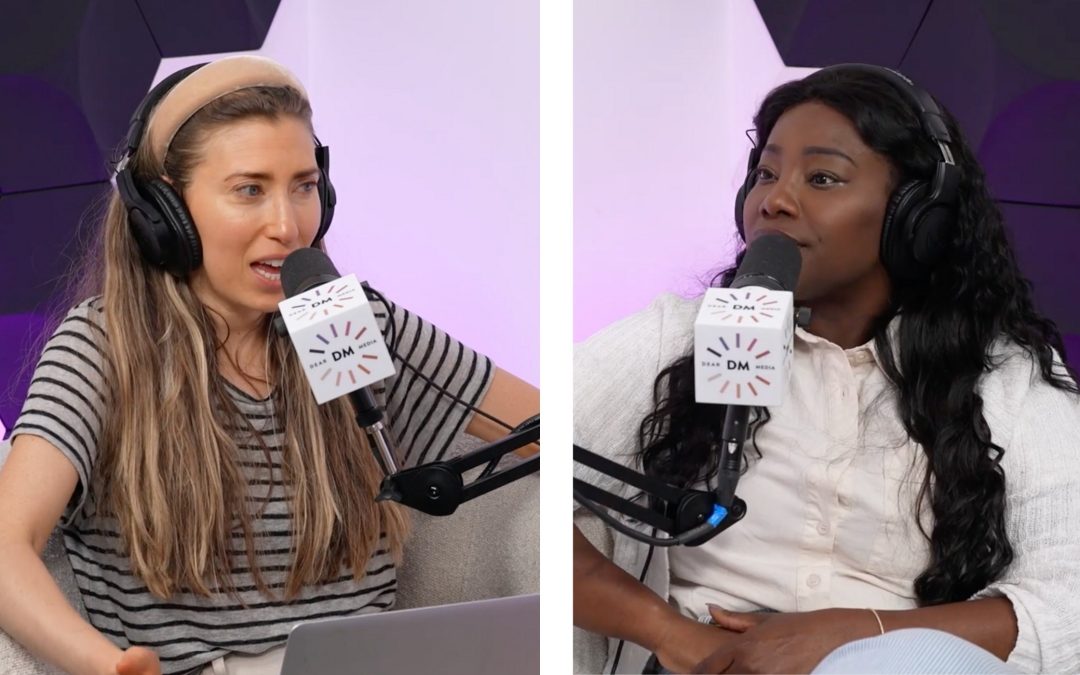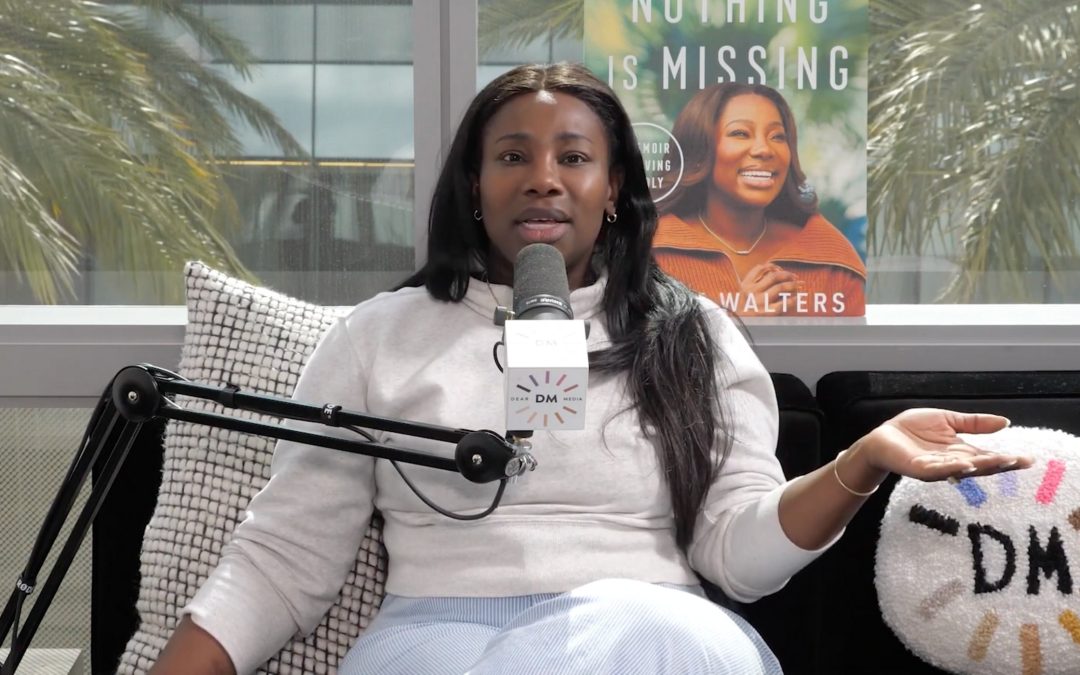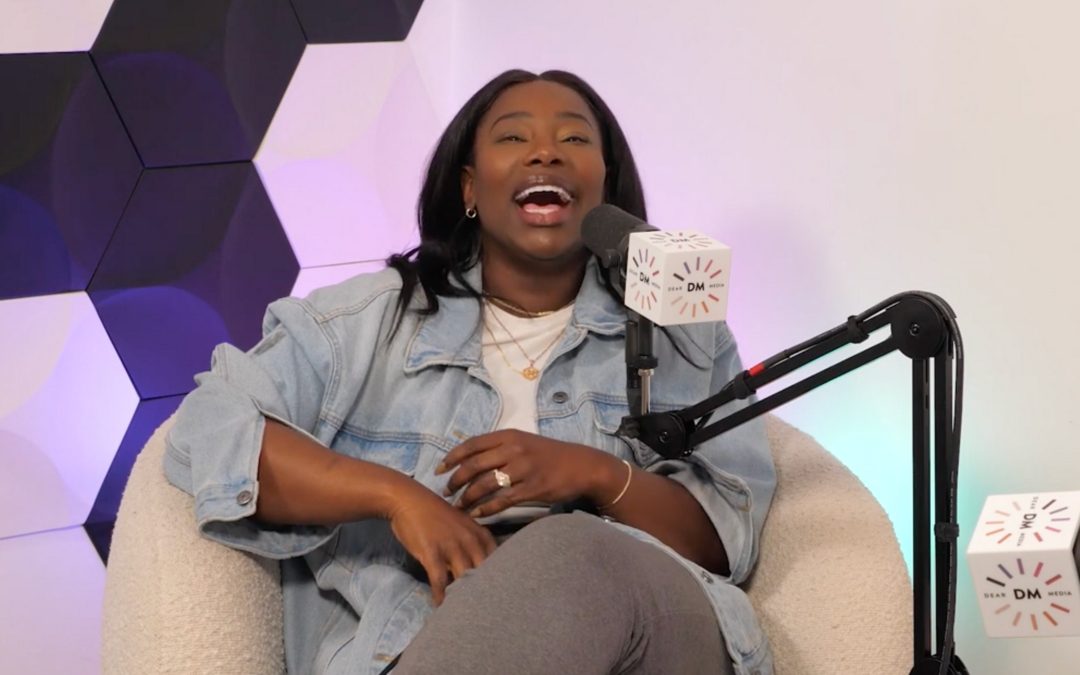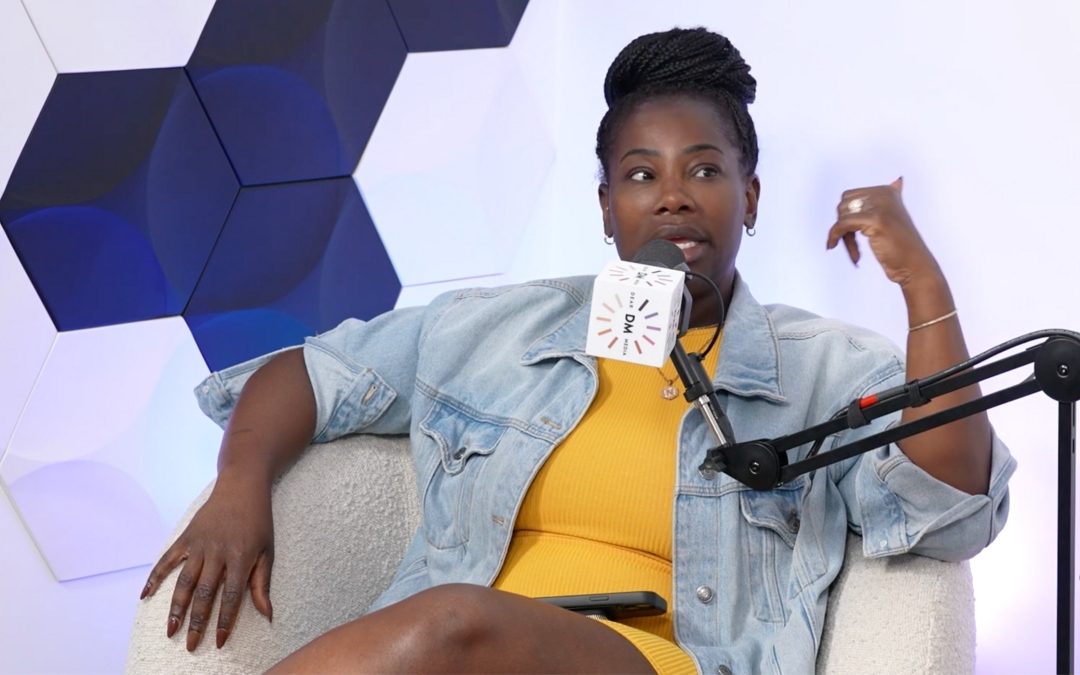
Going Viral RUINED me!
Going Viral RUINED me!
Friend, you may have found me from one of my viral videos and I’m so glad you did. The videos I’ve had go viral are a part of why I’m here and get to talk to you each week. With that type of visibility comes feedback, some that is easy to take and some that is not.
So in this chat, we’re talking about the feedback that stings.
The stuff that hits different and why it’s hard to ignore.
Friend, I am so grateful you are here. Let me know if you can relate to this one over on IG @NicoleWalters!
Nicole:
Hey, friends. So I know that so many of you met me through one of my many viral videos and I want to actually take you back. This is a story I have yet to tell but people asked me about all the time. I have had three pretty big viral moments, actually one of them has more views than the entire country of Australia. So combined, I probably have maybe 200 million views under my belt and they’re made up of pretty much these three viral videos.
And it’s likely where we’ve either met or where you’ve seen me before, but may not have recognized me. And the reason you may not recognize me is because if you don’t know this yet, this is the secret to getting a viral video, make sure you look a hot mess. If you don’t have makeup on, if your hair is not done, if you aren’t wearing a bra, if you are breaking out and sweat, odds are you will likely go viral. It is never when your life is together.
Okay, I’m just letting you know that right out of the gate. So you may not have recognized me but you’ve probably seen one of my videos. Now, the first one was when I was hiding from my neighbors, if you will. And this one was just what I was taking my daughter to the bus stop. So this was almost gosh, six, seven years ago. And people call it either the tennis mom video or the bus stop mom video. But essentially, I was taking my daughter to the bus stop in the morning and I was talking about how just difficult it is to make nice with the other cool moms in my neighborhood because frankly, y’all know me, I’m not the cool mom, not in that traditional sense, right? I’m like the cheese eating, kind of dusty, you know, still thrift for my kids, even if I live in the nice neighborhood type of mom, right? This is why we are the same, right?
But I’m living in you know, at the time, I was living in this like, you know, fancy pants suburban neighborhood where you know, all the moms, you know, played tennis every day. And they wore their tennis outfits to the bus stop. And y’all I am scrambling in the morning. I mean, I am combing my way in the dark to grab clothes off my bathroom floor while I run this kid to the bus stop because I barely have it together. And I am shoving you know a bagel in her hand and hoping that she’ll eat it on the bus, like this is me. And then you get to the bus stop. And then the moms are like, you know, trying to chat but it’s always like the same type of mom chat. And realistically, like I didn’t brush my teeth. I don’t really want to talk like it’s this weird thing.
So I you know, kind of captured that moment, you know of like them asking me things like, is the bus always that late? Yes. It’s always this late. But trust me, it always comes and our kids always disappear. Oh my gosh, it’s so hot in Maryland today. What’s up with the weather? And I’m like, yeah, sometimes it’s hot. Sometimes it’s cold. So this was the first viral video and it just took off because so many of the mamas out there related to the awkwardness of just being a hot mess. While some of these other moms seemed like they professionally have it together. So it was a combination of both just sheer laughing at ourselves, right like self deprecating. We are hot messes together, unite. And a little bit of that, you know, I don’t know, admiration, if you will, because there are some of us moms who are managing to, you know, give our kids kisses on the head and have them all put together, knowing they’ll roll right back to us looking a hot mess. Right?
So all that being said, that was my first viral video, and then my second viral video was when I was dropping my daughter off at college. And this was also a mom video, ironically enough, and we had dropped her off to college three days prior. And this video was me going back to the college and literally walking around the campus looking for my daughter, and I was looking for my daughter because I hadn’t heard from her in three days. And this viral video had again, a mixed response, right? You know, half the moms were like, look, this is me. I don’t care where you are. If I don’t hear from you for three days, you are my daughter, I am coming to find you. Right, like a lot of us related. We’re like I am on that energy.
And then of course the other side of it, which we will talk about today a bit, you know, which was, oh my gosh, let your kid breathe. Like you don’t hear from her for three days, don’t be a helicopter mom. We’re gonna talk about that today. No, we’re gonna talk about that response. And then my last viral video or most one of my most recent ones, I’ve had some mini viral videos, shout out to AJ of the Backstreet Boys this week who stitched one of my videos on Tiktok where I was with the Puffin at a diner and… it’s hilarious.
You guys have to go to my Instagram at Nicole Walters and watch this video. And I was sitting with her and She was like, Oh, Mom, look at those older adults over there having breakfast. That’s so awesome. They look like some type of band. And I was like, what type of band are they look like? And she said, the Backstreet Boys, y’all, when you watch this video and see I do a slow pan over to you know who she was talking about? They looked more like the Beach Boys. Okay. I mean, they were literally I don’t think there was a single person at that table under the age of 70. And I literally looked at her and said, how old do you think the Backstreet Boys are? Like, you’ve got to be kidding me. And needless to say, it was like a really funny, cute moment. And it found its way to the Backstreet Boys, when Lance Bass of insync saw the video and sent it to them.
So cute little viral moment this week, and it’s, you know, circling around. But my third viral moment was actually back in 2020, when I shared a little bit of my story in my background, about, you know, being a black woman in America doing the sort of racial reconciliation moment awareness, you know, that occurred after George Floyd’s murder. And, you know, what was interesting was, so many of the moms who had found their way to me in the previous two videos, really, were touched by that sharing because it was relatable, it was something that they could understand. And they felt like I used language that allowed them to be empowered to share the story as well, and really understand some of the struggles and difficulties of being black in America.
And, you know, having kids and wanting them to be safe, and all all those things. So, you know, I’m really blessed to have had, you know, several videos that brought both laughter and learning into people’s lives. And it’s likely how you found me, but I want to share with you today, the other side of that. So one of the things that is very difficult about being out in the world, and I share this with you, because I know a lot of you either are hesitant to share your life, you choose to be private, because it’s easier, you know, and that is your choice, and it is appropriate, some of you feel called to do more, you know, to be able to be out there and, you know, maybe share your story. Some of you feel that poll or that tug, or you’re trying to find that happy balance of boundaries, and also sharing what you know.
And I just, you know, always want to give you kind of as friends, you know, the perspective of what that’s like, and some of the hard things I’ve had to deal with, and just be very transparent. So a lot of people see these viral moments, and the feedback and response can be different. So on some of the videos, what I’ll say, let me just shout this out, friends overwhelmingly, is no matter what you do in life, it always turns out better than you hoped. I just want to be really transparent about that. It always, always turns out better than you hoped. So from all of this viral exposure, my life overwhelmingly is better. I have had an increase in visibility, I’ve had an increase in opportunities, I’ve had an increase in income, my children have been blessed, like it has overwhelmingly been good.
I will also say that a lot of that is because the content that I do is with the intention of being good. There are lots of ways to go viral and if you have a history of creating content that is impactful and positive. And again, good, you know, you will see positive things from that even if you have mixed feedback from it. Now to that mixed feedback. One of the things that’s very difficult about being a public figure or having a life with more visibility is that you will get negative feedback. And this is something that I have never really said out loud, because I’ve always been kind of scared to say it out loud, because I’m like, I don’t want people to use it against me. And it is definitely a sore point. But I’ve chosen today to say it out loud. Because I’ve always found that whenever I keep things to myself, it has more strength versus saying it out loud.
So the truth is, it’s amazing, all the things people will come for me for they will come for me for my marriage, for being in love for losing weight for, you know, growing my business, for everything. And crazily enough, as much as people will come from me for those different things, you would think that that would affect me. And it really doesn’t. Whenever people have a commentary, as someone who’s lost over 100 pounds regarding my weight or my body, it’s not a nice thing to say, right? And those things are impolite, but they don’t actually hurt my feelings. And the reason why they don’t hurt my feelings is because, you know, that sort of stuff is, I know who I am. I feel comfortable in my body. Like it just doesn’t feel true. Right? It’s not something that taps on an insecurity. And I think a lot of you can relate to that.
People can say certain things about you and it just sounds so outlandish and weird that it just doesn’t really affect you kind of rolls off your back a little easier. But the one thing that overwhelmingly, I can feel myself getting like choked up about it because it just, it’s such a thing that is so hard for me to hear as negative feedback. And it is difficult is about my parenting. It’s about being a mother.
And I’ve never said this out loud, because I’ve always been really scared that like, if I say it will people come for more will people use and leverage it more knowing it’s more sensitive, but I also know that in holding it in, you know, it gives it more power. And I want to say overwhelmingly, the world is incredibly supportive of me as a mom. I think other moms can see and understand the challenges of being a mom. And so we’ve gotten very good at giving grace and thankfully, a lot of you hear and, you know, if you’re a newbie joining the journey, you know, you have seen the journey of me being a mom, literally from before I adopted my girls all the way through. And I’ve shared fairly openly about the highs and lows related to that, while still protecting their boundaries and privacy.
And when I say that, when you get those comments, you know, people saying like, You’re a bad mom, or you’re not doing this right or this should be done differently, or you’re using your kids or you know, just things like that, or like but they express concern about your kids or their well being, when I tell you it just hits different. And you know, and I have those moments, it’s crazy, you’ll get like 100 amazing comments, or feedbacks, or DMs, and then you get one person who’s just like, you know, I think really terrible, you know, because you did this, or I think you could do this differently because of this. And I know that this wherever you are, if you’re in the car at Target right now, or if you are, you know, listening to this on the way to work, or if you’re listening to this while momming, you know, in the kitchen, I think that this is one thing that literally anyone, anyone who has a kid or a real sensitive issue can relate to.
It like rings in your head. And the reason it rings in your head over and over and over again, is because it is the thing that we actually love and care about the most. And it is so difficult to hear feedback from anyone, right? Like, which it’s so easy to be like, Well, who cares? These people aren’t in your home, they don’t know you yada, yada. But it’s really hard when the concerns and fears that you have inside your own heart are personified outside. Like I’m yelling this at myself every day. So I’m really trying not to cry. Like, I don’t know, if people realize that there is no level of bashing or things people could say about how I am as a mom, that is any harder or harsher than I am on myself.
And it sounds crazy. I know. Because people say it all the time that like no, you know, you adopted these girls and Nicole like you showed up and you know all these things, but I don’t know if you know the people who criticize realize and if they don’t need to realize it because frankly people who criticize it’s never actually about you or the action. Trust me, there’s the part of your mind and your heart that knows that. We all know that, it’s never really about that. It’s about people looking for a way to break you down. And so they’re looking for, you know, wanting a way to criticize because there’s nothing served, right?
Like when people say terrible things about you, particularly if they don’t say it to you, they’re not actually looking to improve you, right? They’re just saying it because they’re looking to voice negativity, because that’s their opinion, you know, because truly, if someone felt like you’re actually a bad mom or something that they would call like child protective service. Or if they didn’t like the way that you parented they might say it to you in hopes that they would help or drop a link to serve you. Like it literally is just people saying harmful things just to be hurtful or just to like quip and talk about it, you know, but it’s wild because when people say these things, and you realize like how hard you’re trying, you know I love my girls so much. And I hold them in such high regard. The responsibility, I don’t know what it’s like when you carry, right like thankfully, God willing, I will someday you know, I don’t know what it’s like to carry my own child yet.
And I don’t necessarily understand that relationship or connection that people have when they carry their own child. But what I can tell you is that I feel a responsibility, a loyalty, a dedication, an obligation and honor, you know, a privilege to show up in these girls’ lives in a way that is so thorough and big and complete, that it’s overwhelming at times. That’s how much I love them. The critics, you know, and also just the observers, right. And also, even the internet aunties, as much as you all have seen through the viral videos, and the stories and on social media of our girls growing up and as much as you’ve seen, and lent the love and the prayer and the covering over our family in your lives, when I tell you, all of that goodness that you’ve seen of my babies, is literally only like 1% of how good they actually are.
These girls have survived things that some people have only had nightmares about, they have their own books that could be written. And when I tell you that I wish that I could give, I would give my life to erase some of the things that they’ve experienced. And as a mom, you know, a lot of people don’t realize that the things that they see in the viral videos, or the interactions that we have, you know, are, again, 1% of 100% of our lives, and there’s a levity to our life, because of some of the darkness that we’ve experienced together, you know, and independently.
Our home is so filled with like, light, and joy, and laughter, and safety. Our home is so safe, when I tell you, it is a place where it’s probably the thing that I have elevated above all else as a parent, in the raising of my children, because I realize that if they feel safe within me being like, you know, I consider mom being like base, right? Like, you can always come back to base, touch base and you’re safe, right. And if they feel safety within me, they know that they can get guidance, they can get direction, they can get support, they can get love, even if it means that I’m, you know, playing with them or cracking a joke or, you know, we have almost like a friendship energy with my older girls, you know, but make no mistake, it is clear that I am mom.
And I make that clear, because there’s a little bit of that traditional old school in me where it’s like, look like, you know, we can be hip and cool and aware of social and Tiktok and all those things but at the end of the day, like we’re not going to get out of pocket, I’m still mama. And I just take that this is the most serious job I have. And so I say this because I think that a lot of moms can realize and recognize that it’s hard to live life, it’s hard to build a business and spend time away from home and go through a frickin divorce and deal with all of these things. And also want to feel like you’re showing up in the most perfect and pristine way for your kids. Right?
So I say all this to say that criticism, you know, it hurts and it’s hard. But this kind of brings me to the lesson from all of this you know, if you follow my social media you’ve seen that I always will call out if there’s a particular thing that I think is wildly inappropriate. You know, that is said or a question or criticism. I have had people criticize and say things like Nicole, you don’t have enough black girlfriends because they’ve seen me hanging out with like my core girl squad. Little do they know that my core girl squad is a Filipino, a Texan white girl, you know a half Ghanaian, half Filipino and me. So it’s just, you know, people will say things based on what they see and not what reality is, you know, people don’t even read the captions. And they’ll say something. So, you know, but I’ve gotten comments like that I’ve gotten comments about wearing crop tops, you know, that I can’t believe you would wear a crop top to a meeting, oh, sis, of course, oh, aircraft up to the meeting. I’m the owner of the company who’s gonna fire me boo. <laughs>
I mean, these are real things, you know, but you know, I’ll get these comments and you’ll see me call out and respond to them. And again, like I said, most of them, you know, it’s easy enough for me to keep my cool because, like, you know, kind of water off my back. But you know, being a mom, that’s always tough, it hits hard, because it’s just the job that I take so seriously, and I’m always trying to improve. So sometimes I hold space for feedback I shouldn’t hold space for but that brings me to the lesson, you know, that I am really trying to apply to my life and I hope that you hear as well as you’re hearing criticism. And you know, if you are a healthy, you know, well adjusted person, you know, and you hear feedback, you may give it a little bit of space because you know, you are not so egotistical that you think you’re imperfect, and I’ll let you know that the thing that I’m really holding close is you know, don’t dim your light just because it’s shining in their eyes.
And that’s something that I actually call out a lot of my book, which is available for pre sale now it’s called nothing is missing. You can purchase it anywhere books are sold. And it’s my memoir, it goes into a lot of the behind the scenes of these stories of the viral moment of raising my kids. You know, if you’ve seen 1% online, the book is going to take you all the way up to 50%. You know, so I really put a lot of color behind everything that is happening. And I say this to let you know that. You know, one thing I’ve learned is, it’s not your typical thing that you hear all the time where it’s like, don’t listen to your haters, right, or, you know, these people are just hating on you because you’re flexing it’s not that it’s that if you’re a person who’s out in the world, doing good, you know, and you guys know, oh, my god, girl, right? You know, if we are lights that are put on a hill, we are going to shine, we are going to shine. And every single thing that has happened in my life God has used for good. You know, when I had my first viral video, you know, where I was, you know, on this college campus with my daughter, and people were saying I was a helicopter mom and all of this. I mean, I’m telling you, I was in a ball. I was teary. I couldn’t believe that someone would say something like that, when it’s so clear, to this day, let’s just be real friends. Let’s be real to this day. I still, if someone wants to send me an email helping me understand this perspective, I still cannot believe that there are people who think it is wild that if you don’t hear from your kid for three days after dropping them off at college, for the first time, your daughter, your 18 year old daughter that it is appropriate to not look into it. Like that blows my mind literally, like maybe I am a crazy mom, but I accepted on that count. You know what I mean? Because if I don’t hear from you, and you’re not answering your phone, and I can’t reach you, I’m coming to find you.
Like my girls know this. I’ve even said if it’s an apocalypse stay put mom was coming to find me like I’m coming to find you. So it still is crazy to me. But I’m not kidding. I still was in my head like who am I? Am I over the top? Am I suffocating my kids, when we have an open safe house. My kids are saying like No mom, like it’s we know when you’re joking. We know when you’re not, we know when you’re angry. And we know when you’re not we like the way you balance out like my kids, they like we truly have a very amazing relationship I’m super grateful for and so it’s so interesting that I still got in my head about it. And I say this to you because I know we all do this. But I want to let you know that. In these moments, one of the things I learned was God was preparing me for it.
Because here it’s a tiny microcosm, in the very beginning. It’s a tiny viral video of the type of visibility I’ve had since then. I’ve had TV shows, I’m working on current TV show projects, I’ve, you know, got a book tour coming up, you know, in October. I’ve got all these things. And at that point, I wasn’t even thinking about writing a memoir. And now I have a book that is literally going to reveal everything about me, my childhood, my life, my background, all of the things and y’all I am sick to my stomach about it. You know, even while having people read it and say this book is unputdownable, it is transformative. I cannot believe you know what you survived in the lessons you’re sharing.
And yet, you know, I still was, you know, heartsick about some of this feedback. And I just want to let all of you know, you know, more and more, as I am in this world and have been blessed with the platform and grateful for the gift to be able to share the things that God has delivered me from and how he has been able to do it. That I do not want you, wherever you are, to be hesitant about sharing what you know you have simply because you know someone out there is uncomfortable seeing you shine. If people have a hard time seeing you out there and shine, the problem is not you and the way that you’re shining is the fact that they don’t own a good pair of sunglasses. They need to adjust, because you’re going to be out there doing the good work. And everyday when you show up for your kids, you’re doing the best you can with what you’ve got. And that is enough.
And every time you show up in your business, you are doing the best you can with what you’ve got. And that is enough. We have to keep learning, we have to keep improving. You know, we have to listen to feedback, but it needs to be from a trusted source. And I do not want you where you are, spending time noodling the one bad thing you heard from a friend from a co-worker from a rando on the internet, when the truth overwhelmingly is that you are enough and nothing is missing.
In this episode, we chat about:
- The feedback you get from going viral and if it’s worth it,
- What you should consider if you’d like more visibility but are fearful of the haters,
- The type of comments I don’t care about and the ones that STING, and
- How I filter feedback so I can grow but not dwell on all feedback
Resources and links mentioned in this episode:
- Pre-order my memoir, Nothing is Missing, HERE!
- Send me a DM on Instagram and Facebook!
- Book a 20 min call to see if working together is the right next step for you!
- Don’t miss our last chat with Blair and Morgan from Moms Actually! Listen here!
- I love reading your reviews of the show! You can share your thoughts on Apple here!
More about The Nicole Walters Podcast:
If you’re looking for the strategies and encouragement to pursue a life of purpose, this is the podcast for you! Week after week Nicole Walters will have you laughing hysterically while frantically taking notes as she shares her own personal stories and answers your DMs about life, business, and everything in between.
As a self-made multimillionaire and founder of the digital education firm, Inherit Learning Company, Nicole Walters is the “tell-it-like-it-is” best friend that you can’t wait to hang out with next.
When Nicole shows up, she shows OUT, so tune in each week for a laugh, a best friend chat, plus the strategies and encouragement you need to confidently live a life of purpose.
Follow Nicole on IG @NicoleWalters and visit inheritlearningcompany.com today and click the button to join our betterment community. Your membership gives you access to a world of people and tools focused on helping you build the life you want.
